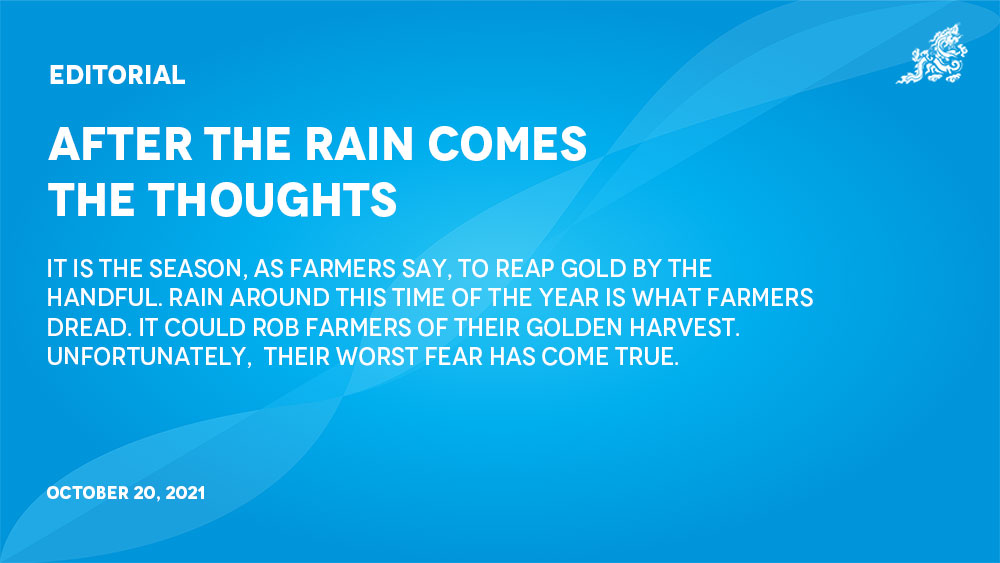It is the season, as farmers say, to reap gold by the handful. Rain around this time of the year is what farmers dread. It could rob farmers of their golden harvest. Unfortunately, their worst fear has come true.
Even as we write this, it is raining throughout the country and there is no sign of stopping. The weather forecast says rain for the next two to three days. In the rice growing regions – from Paro to Punakha to Trashigang – farmers are trying to save whatever they can of their annual paddy harvest.
The paddy fields, where usually farmers are seen threshing paddy at this time of the year, are flooded. Draining out excess water alone is not enough if the paddy is harvested and laid to dry. Not much will be recovered and the quality of rice would be affected.
There is not much farmers can do when it comes to the vagaries of nature. However, there are now means to plan our work. Information on weather is available and is updated on a daily basis. With improved technology and expertise, our weather forecasts are fairly accurate. On October 17, the National Centre for Hydrology and Meteorology (NHCM) forecast rain for three days, until today. If we had checked the weather and planned accordingly, the damage could be have been minimal.
Weather forecast for all 20 dzongkhags is broadcast every evening on national television and other mediums like newspapers and websites. Not many of us follow or plan our work based on the forecast. It has not been in our culture. However, that does not mean that we should be as ignorant as ever.
It is here education or technology comes handy. If the sons and daughters of farmers alerted their parents of the rain forecast, it could have saved them a year’s harvest. We have, unfortunately, forgotten to take education beyond classrooms or not reaped the benefits of technology. For example, the weather Apps on our mobile phones are updated hourly and it is fairly accurate. The irony is that we all carry the latest smartphones, but cannot use them smartly.
As farmers and officials assess the damage, it will not be the last. Climate change and unpredictable weather patterns are realities that we must live with. It may be untimely rain this autumn. It could be delayed monsoon next year or excessive rain in a short period of time. What we also know is that Bhutan is highly vulnerable to the impacts of climate change. We are already feeling it with extreme weather and changing rainfall patterns.
There are accurate, reliable and timely hydro-meteorological information to help not only farmers, but provide a basis to our planning and decision making. How much is it used in our planning and policy making?
At a time when climate change and its impact is dominating global discourse, our own agencies like the NHCM, mandated to study, understand, generate information and provide services on hydrology, climate and the cryosphere needs to be more recognised to play a bigger and vital role. What if they cautioned farmers of the incessant rain these few days?


